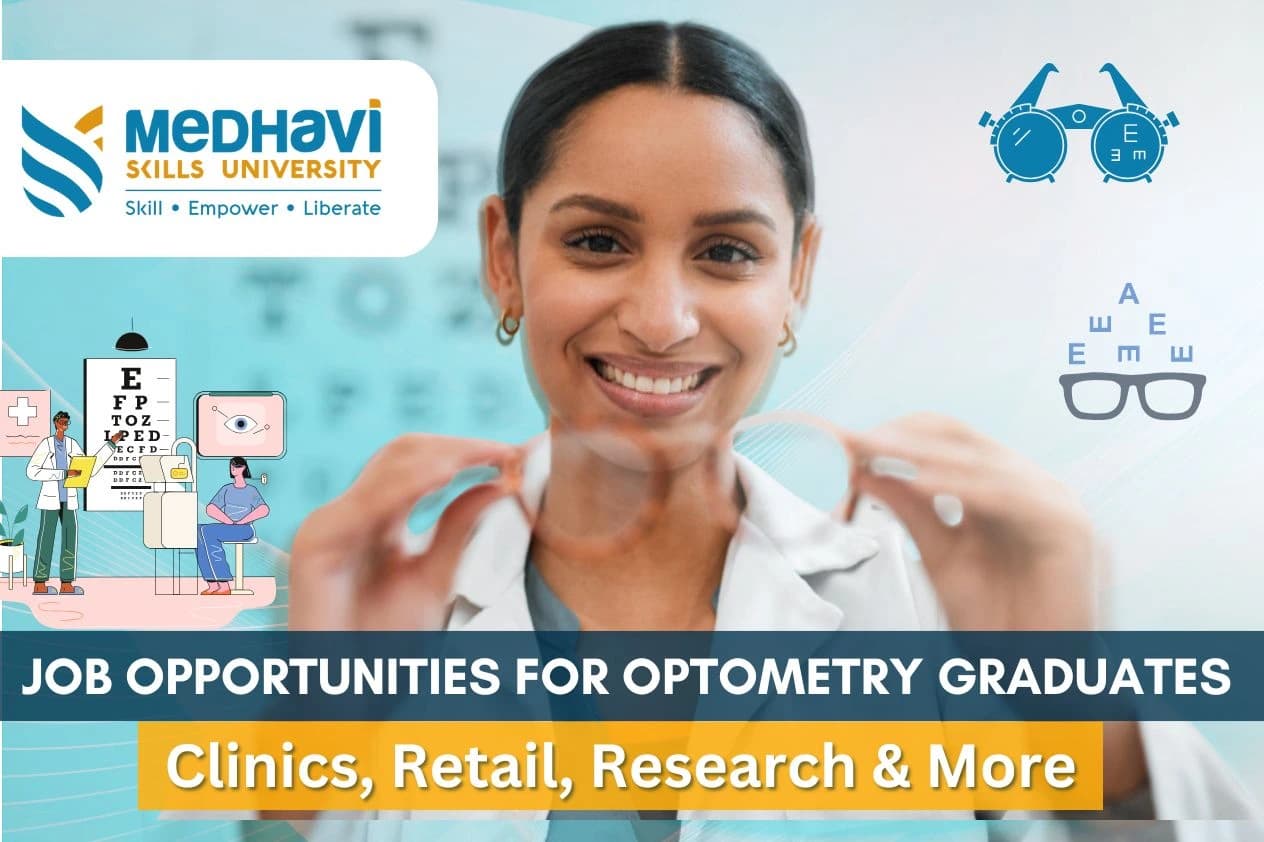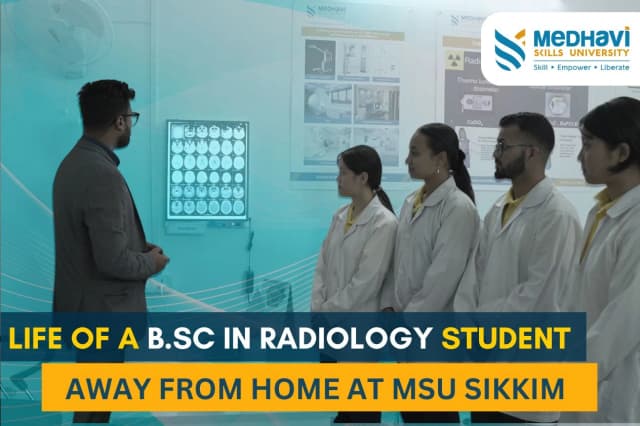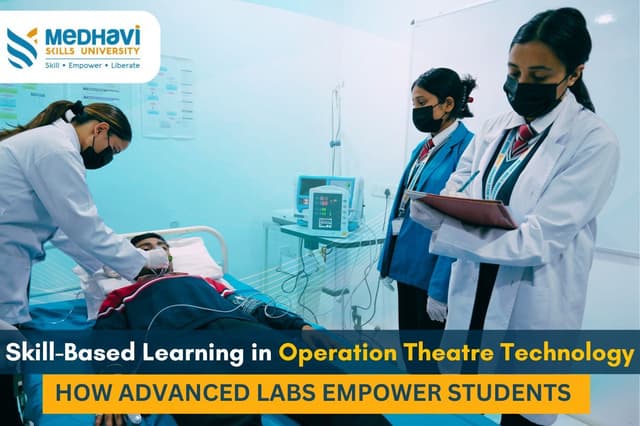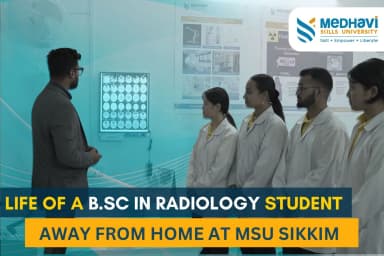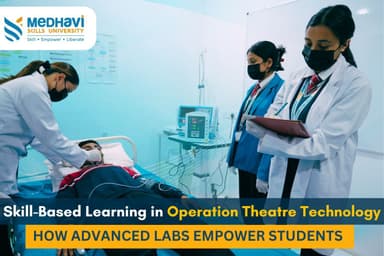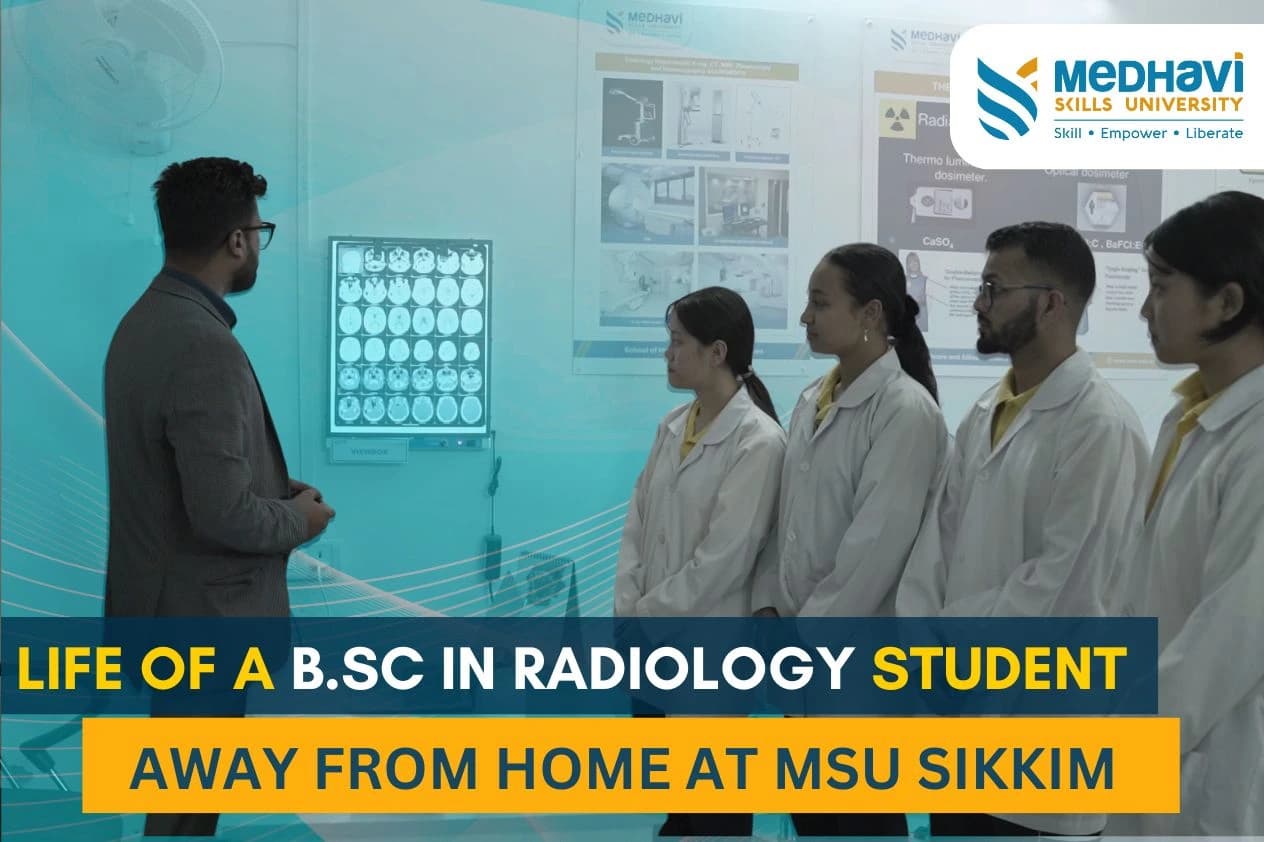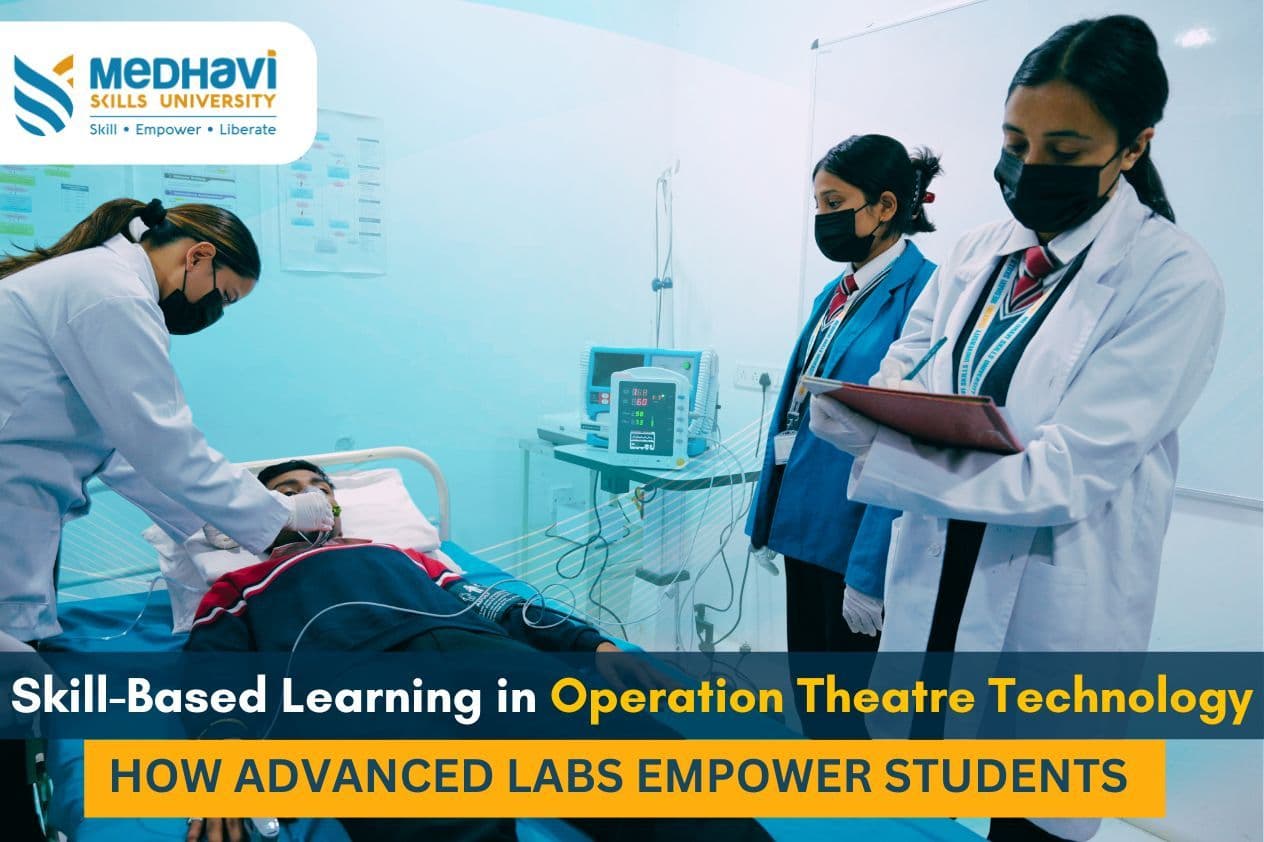Eye health has become a rising priority across the globe due to increasing screen time, changing lifestyles, and increased awareness of visual care. This has led optometry to emerge as a respected and rewarding career. Graduates with a Bachelor of Optometry degree or B.Sc Optometry have achieved a considerable level of knowledge surrounding vision care, eye disorders, and modern approaches to diagnosis. This knowledge, skill, and experience can open opportunities in various settings including healthcare, research, clinical practice, and entrepreneurship.
In this article, let’s take a closer look at the career opportunities following optometry, what the scope of the profession is, and how you will be prepared to engage in real healthcare careers through a skill-based learning model.

What is Optometry?
Optometry is a profession within healthcare that is dedicated to the care of the eye and sight. Optometrists are responsible for examining, diagnosing, treating and managing visual disorders, and prescribing corrective lenses and/or vision therapy.
They also work as part of a team, consulting with ophthalmologists in the event that medical or surgical management is required. As a healthcare profession with a specialty in visual care, and low awareness of the profession in general, students may frequently be searching for Bachelor of Optometry course details or B.Sc Optometry course detail to find how to get qualified and what options will be available once qualified.
Career Opportunities After a Bachelor of Optometry.
After finishing their course, students can enter one of several career paths in optometry:

- Clinical Optometrist
You will work in an eye department in a hospital, in a specialty eye clinic, or in a center for vision therapy. As a clinical optometrist, you will evaluate and diagnose a range of ocular diagnoses, such as refractive error, binocular vision, glaucoma, and other ocular conditions.
- Retail Optical Practice
You can join a reputable optical retail brand, such as Lenskart, Titan Eye+, Lawrence & Mayo, or Dr. Agarwal's Eye Hospital. This type of role can involve doing eye tests, guiding clients on options, and fitting lenses.
- Contact Lens Specialist
In this role, you will fit therapeutic or cosmetic contact lenses for patients with refractive error, keratoconus, or post-corneal surgery. You will become an expert in contact lenses.
- Low Vision Specialist
You will work with patients who have visual impairment due to retinal disease or neurologic disorders. Your focus will be to assist your patients in a visual rehabilitation modality.
- Corporate Sector & Vision Care Brands
Vision care industries and organizations will recruit you as an optometrist for areas such as product training, clinical support, or technical sales for lens and optical eye-care devices.
- Research Assistant
You may join a research team for the development of ophthalmic equipment, visual therapy techniques, or clinical studies related to eye health.
Public Health & NGOs
Be a part of eye-care awareness through consortia of community health programs organized through NGOs such as WHO, LV Prasad Eye Institute or Orbis India.
- Academic Instructor or Lecturer
After opting for employment-based clinical experience, teach optometry students in academic institutions.
- Ophthalmic Consultant
Collaborate with hospitals or clinics to develop and implement patient care models and clinical services.
- Entrepreneurial Opportunities in Eye Care
Open a private eye clinic, optical showroom, or vision therapy center and practice optometry independently.
The Importance of Hands-On Training in Optometry
Optometry is not a solely knowledge- based profession, but also your ability to apply clinical judgement, understanding patient management, and using your clinical diagnostic equipment. Classroom education helps build a relying theory, but the benefit comes in clinical education, where you are developing the confidence to serve patients in real-life scenarios and justifies readiness for your career.
This is why universities who invest in skill-based education models are preparing a greater number of optometrists for working in the profession. For instance, a university like Medhavi Skills University (MSU), encourages work-integrated Bachelor of Optometry program that are delivered through work-based On-the-Job Training (OJT) arranged in hospitals and eye-care centres.
Discover the world of Optometry at MSU -
https://www.instagram.com/reel/DA5t1vsITV9/?utm_source=ig_web_copy_link&igsh=MTJhbmxlb3l3YTRnag==
Student Experience: Learning within the context of actual clinical experience
Here is a snapshot from Keshav Adhikari, who is currently a Bachelor of Optometry student with MSU:
“My university is based on skills, which means we receive more practical exposure than just theory. Through OJT at Siliguri Greater Lions Hospital, I learned how to deal with patients, manage real cases, and handle situations professionally. This initiative by MSU has helped me enhance my skills and understand the true nature of optometry practice. Education is important, but skill is mandatory to grow in this career.”
This type of industry-integrated learning guarantees that by the time you graduate, you are already acquainted with optical equipment, refraction, slit lamp examination, binocular vision evaluation, and patient consultation.
Watch how MSU transformed Keshav’s life -
What Skills You Will Learn After Pursuing Optometry at MSU.
The Bachelor of Optometry at MSU program prepares students with a well-rounded background in eye care and professional and clinical skills:
- Clinical testing of the eyes
- Optical dispensing and fitting of lenses
- Refraction techniques
- Fitting of contact lenses
- Use of diagnostic equipment
- Vision therapy and rehabilitation
- Management and consultation of patients
- Screening for ocular disease
- Documentation of clinical activity
- Professional ethics and communication
Why MSU for Bachelor of Optometry?
Medhavi Skills University is unique because it provides a work-integrated, skill-based education experience in alignment with NEP 2020. Students experience up to 70% practical exposure during OJT - at leading eye-care hospitals. The program affords students learning experience before graduating, ready to work on day one.
Major Benefits of the Program:
- Industry-linked learning
- OJT delivery method
- State-of-the-art optometry labs
- Soft skills and communication knowledge and skill
- Placement assistance
- Competitive advantage in the job market
Optometry provides a stable, respected, and meaningful career path within the healthcare arena. As awareness around eye health continues to increase and demand for vision care practitioners continues to increase, Bachelor of Optometry graduates will have a significant and bright future. In this case, the key to success is to select an optometry program that provides a skill-based, practical training in optometry that links the academic and clinical aspects, just like we do at MSU.
If you love the idea of eye care and want a career that emphasizes healthcare and technology, optometry is a wonderful career path you should consider.
Watch How Practical Skills Prepare Students for Industry at MSU:
